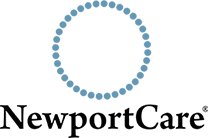National Scoliosis Awareness Month is celebrated in June every year to highlight the growing need for educating people about scoliosis, a disorder of the spine that commonly occurs in children between the ages of 10 to 15 years and can be easily managed if diagnosed and treated at an early stage. Here are some interesting facts about scoliosis:
- It is the most common form of spinal deformity. Roughly 1 in 30 Americans may experience some degree of scoliosis.
- The exact cause for scoliosis is unclear. The most common type of scoliosis is known as idiopathic scoliosis which means scoliosis due to unknown causes.
- Approximately 90% of the cases of scoliosis are very mild and do not require treatment. In most cases, doctors will only recommend checkups every 4-6 months to look for signs and symptoms of worsening.
- Scoliosis affects girls more than boys. Girls are 8 times more likely than boys to develop a progressive spinal curvature which requires treatment.
- Screening for scoliosis can be done in 30 seconds. The screening procedure is noninvasive and can be performed very easily.
- Bad posture does not lead to scoliosis. It is a common misconception that bad posture can lead to scoliosis. The current thinking is scoliosis may be caused by genetic factors that are triggered by environment conditions such as trauma, infection, or malnutrition.
- You are at a higher risk if someone in your family has scoliosis. According to research studies, you are at a 30% higher risk if a family member has scoliosis.
- Early detection improves treatment outcomes. It is important for parents, teachers, and healthcare professionals to be taught to identify early signs and symptoms of scoliosis. If scoliosis is left untreated, there is a chance that it could progress to cause chronic back pain and impaired heart & lung function.
Common signs of scoliosis are uneven shoulders, one shoulder blade looking more prominent that the other, one hip higher than the other, or an uneven waist. If you notice any of these symptoms in your child, contact your doctor or an orthopedic physician to effectively address your concerns.
The NewportCare Medical Group is an outcome driven practice that offers personalized, high quality care to each patient. Book an appointment with us today.







